Listening to voices on the margins: Lessons from the COVID-19 crisis for improving access to clean water for drinking and hygiene in the Mekong Region
Abstract
Limited access to clean water for drinking and personal hygiene (e.g. handwashing) puts people at greater risk of contracting and dying from COVID-19. As of mid-June 2020, the direct effects of the COVID-19 outbreak on human health in the 5 Mekong Region countries have been comparatively modest compared to many other regions of the world. What will happen in the latter half of 2020 and further into the future is difficult to forecast, and risks for people without good water access remains a concern.
The indirect effects of restrictions on the movement and activities of people within and across borders, necessary to reduce the likelihood of infections spreading more widely, have already had significant impacts on employment, livelihoods and incomes. Although some concerns were expressed early on for at risk groups in Myanmar, it is unclear what impact that the disruptions to systems of provision, reduced income and restricted mobility as a result of responses to the COVID-19 outbreak had on vulnerable and marginalized people’s access to clean water for drinking and hygiene.
In the first couple of months of 2020, concurrent with the COVID-19 outbreak, some parts of the Mekong Region were also suffering from drought. It is unclear if the COVID-19 outbreak exacerbated in any way the water insecurities arising from climate and resource conditions at the end of dry season in 2020, or if the impacts on wellbeing and insecurities were largely independent from each other. As the wet season of 2020 unfolds the question may also arise regarding flooding as this can, through contamination, effect access to clean water.
The COVID-19 outbreak has been a disruptive crisis, in the sense of its impacts on systems of provision. What lessons can we learn from the COVID-19 crisis for reducing water insecurities in the Mekong Region, in the event of other disruptive crises, for instance disruption of clean water supplies or source arising from climate-related disasters?
The disruptive COVID-19 outbreak is a critical opportunity to help improve access to clean drinking water and hygiene for all. In this project, we listen to some of the most vulnerable and marginalized people in the Mekong Region to find more effective ways of meeting their needs and reducing their risks.
Lead contact
Dr. Louis Lebel
Unit for Social and Environmental Research, Department of Social Science and Development, Faculty of Social Sciences, Chiang Mai University, Thailand
Email: louis@sea-user.org
Latest Stories
-
Handwashing and mask wearing during COVID-19 in water insecure communities in Chiang Mai
This piece is based on the survey results from VOICES project looking at COVID-19 and water insecurity.
![Handwashing and mask wearing during COVID-19 in water insecure communities in Chiang Mai]()
-
Impacts of COVID-19 on access to clean drinking water among water insecure households in Chiang Mai
The impacts of COVID-19 to access of clean drinking water in Chiang Mai residents
![Impacts of COVID-19 on access to clean drinking water among water insecure households in Chiang Mai]()
-
Perspectives on water insecurity challenges of local communities in Myanmar in the midst of COVID-19
Myanmar's local communities groups are facing a range of water challenges in the midst of COVID-19
![Perspectives on water insecurity challenges of local communities in Myanmar in the midst of COVID-19]()


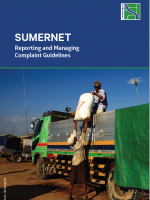

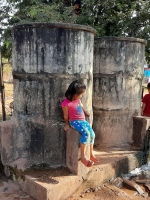
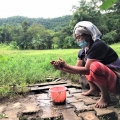
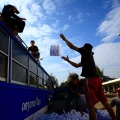
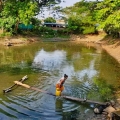
 Read more about SUMERNET
Read more about SUMERNET
